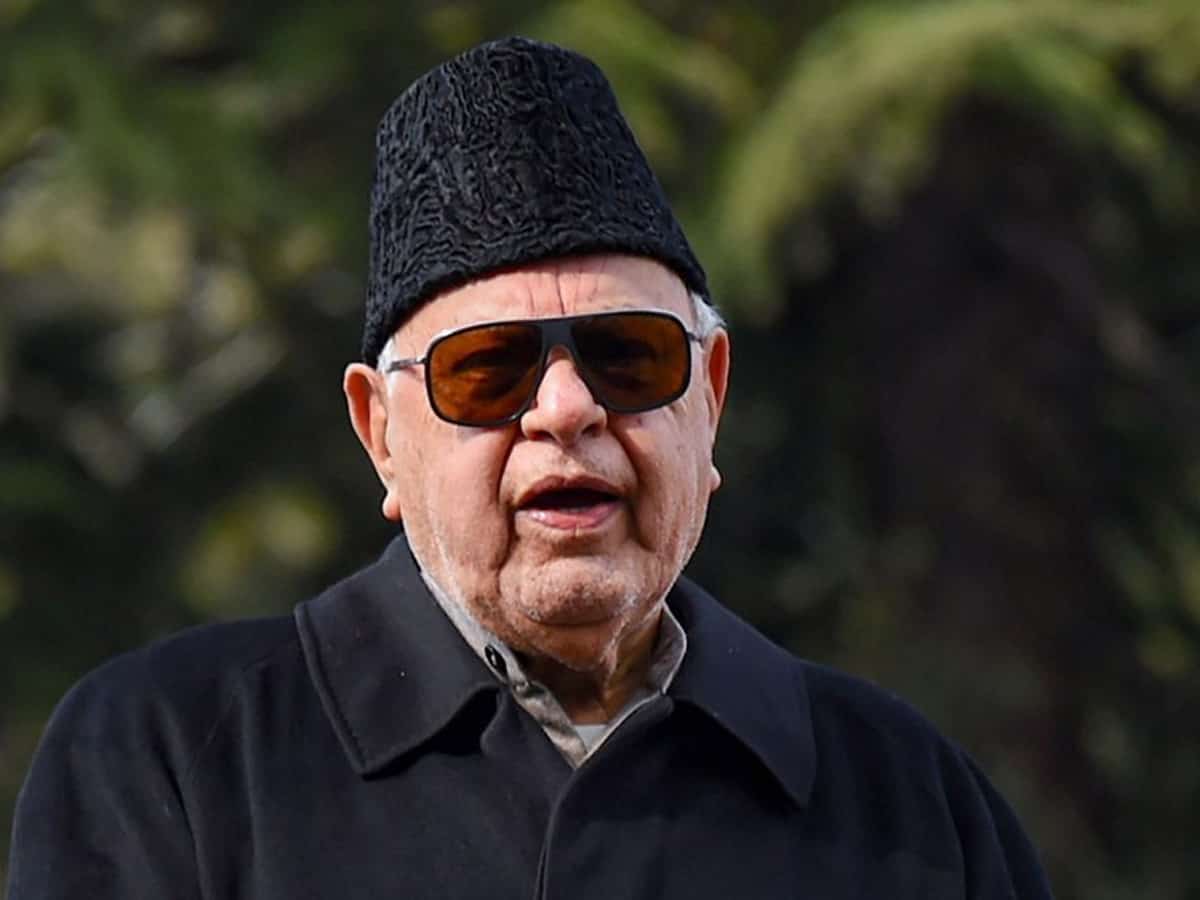
The tallest leader of Kashmir and former chief minister Farooq Abdullah has spoken home truths about how to get rid of terrorism and restore peace in Jammu and Kashmir, putting the onus on the Centre to accomplish this task. His belief that overplaying the peace card in the wake of the abrogation of Article 370 has an inbuilt feature of backfiring at any moment – now a series of terror attacks have confirmed that.
Article 370’s abrogation in August 2019 was an administrative decision to achieve political ends that the BJP had listed for itself for decades. It turned the corner on August 5, 2019, and thereafter indulged in two narratives – all that what happened during the 370 era was wrong, discriminatory, and had given birth to terrorism, and after doing away with this constitutional provision Jammu and Kashmir was on peace as the government had struck hard at ecosystem of terrorism. And the Centre’s zero tolerance of terrorism has delivered a big peace dividend – tens of thousands of tourists have started visiting the Valley, which is free of fear and disruptions that guns and stones caused. This contention is manifested in the changed landscape.
This change has its own limits – it is dependent upon the peace-time optics, normalcy in daily life, and heightened day-to-day activity in the positive frame, but another truth is that the ultimate peace is yet to be achieved. Launching and succeeding in anti-terrorism operations is one side of the story, or for that matter repeated assault on the ecosystem of terrorism serve a very limited purpose. A psyche of separatism that has been going on in the Valley for the past 75 years, (erroneously that is seen in the period since 1989 to this date and continuing) cannot be overturned in just four and a half years. This post-Article 370 abrogation period, though generated a new narrative that Delhi has removed all obstacles in the integration of Jammu and Kashmir, and that the place and people were now integrated fully with India, yet the message was sought to be built through anti-terrorism operations and bringing in more and more tourists not by reaching out to the people in real earnest. Had the people been made real stakeholders, the things and tales of J&K post-abrogation of Article 370 would have been different and more pleasant.
Farooq Abdullah because of his family background and his keen observation of the events and individuals vis-à-vis Srinagar and Delhi since 1947, is the right person to analyze the whole issue in proper perspective, though he misses on one crucial point – putting the ball in Centre’s court and shrugging off his own role in ending terrorism and ushering peace in Kashmir. He has been the victim of his stand on terrorism – he had warned the Centre against releasing five JKLF militants in exchange of late Home Minister Mufti Mohammad Sayeed’s youngest daughter Rubiya Sayeed, and an annoyed Delhi had forced him to do what it wanted. He paid the price by losing his chair. The second time, again as Chief Minister, in December 1999 when he asked the then Home Minister L K Advani not to agree to the release of three terrorists- two of whom Masood Azhar and Mushtaq Zargar were in J&K jails, while the third Ahmed Omar Saeed Sheikh was lodged in Delhi jail. He feared that it would revive the wave of terrorism. Delhi did not side with him, and did what it did, took the three terrorists to Kandahar, the capital of Taliban-ruled Afghanistan at that time, to get hijacked passengers and crew of IC 814 back home. Thereafter, what happened is known to all – Masood Azhar formed Jaish-e-Mohammad, one of the deadliest terror groups in South Asia, based in Pakistan, responsible for attacks on the Indian Parliament on December 13, 20011 and most recent was the Pulwama terror attack in which 40 CRPF personnel were left dead on 14th February 2019.
Centre, Farooq believes, can take steps to usher in real peace in Kashmir as the narrative of peace has been halted for the time being with the killing of soldiers on December 21, three civilians tortured to death in what is given out as encounter very next day in Poonch district of Jammu region, and shooting of a retired Senior Superintendent of Police in a mosque in Baramulla on Sunday ( December 24) morning.
It is realistic to invoke the Centre’s sense of responsibility because terrorism and its psyche are not set in clock. Its needles continue to move, especially when the external forces inimical to India are working overtime. In this case, Pakistan, which is aptly called the “epicenter of terrorism”. Then, there are several internal players who trust their misguided judgment that Delhi has failed to address the issue, hence are keen to teach it a lesson by peddling a narrative of separatism in homes, madrassas, mosques, and even in schools. There is no check on their thinking, and it cannot be brought about by the administrative means alone, or for that matter by using the army and police. Farooq has a point when he asserts, “ We are part of India” and this sentiment should be respected. But he needs to do something more to use his influence in neutralizing narrative of separatism . He enjoys support to challenge separatism at all levels.



